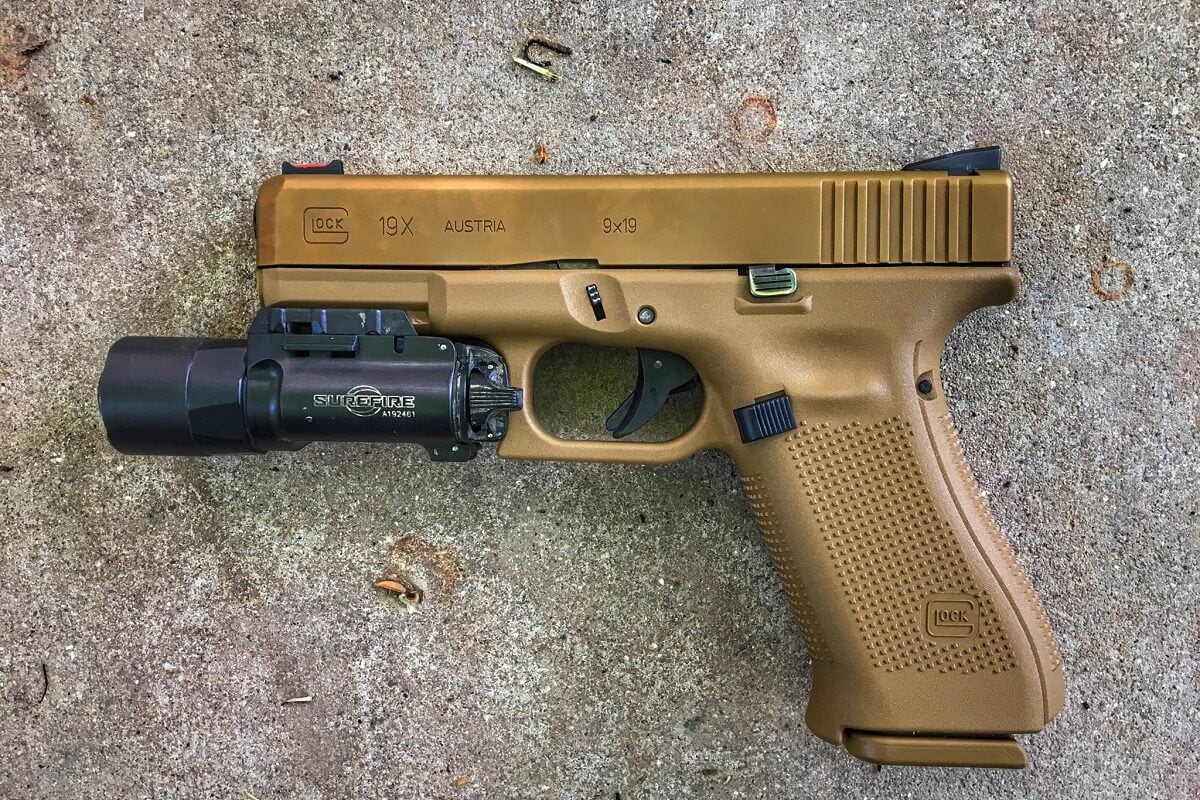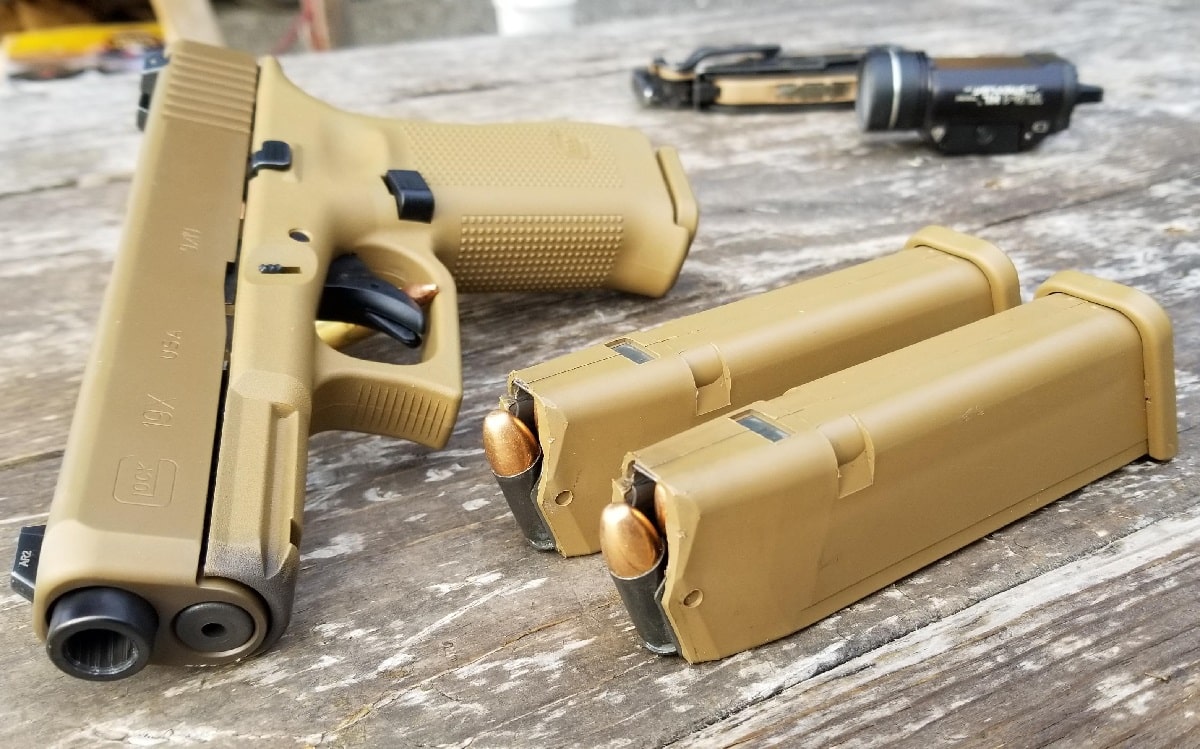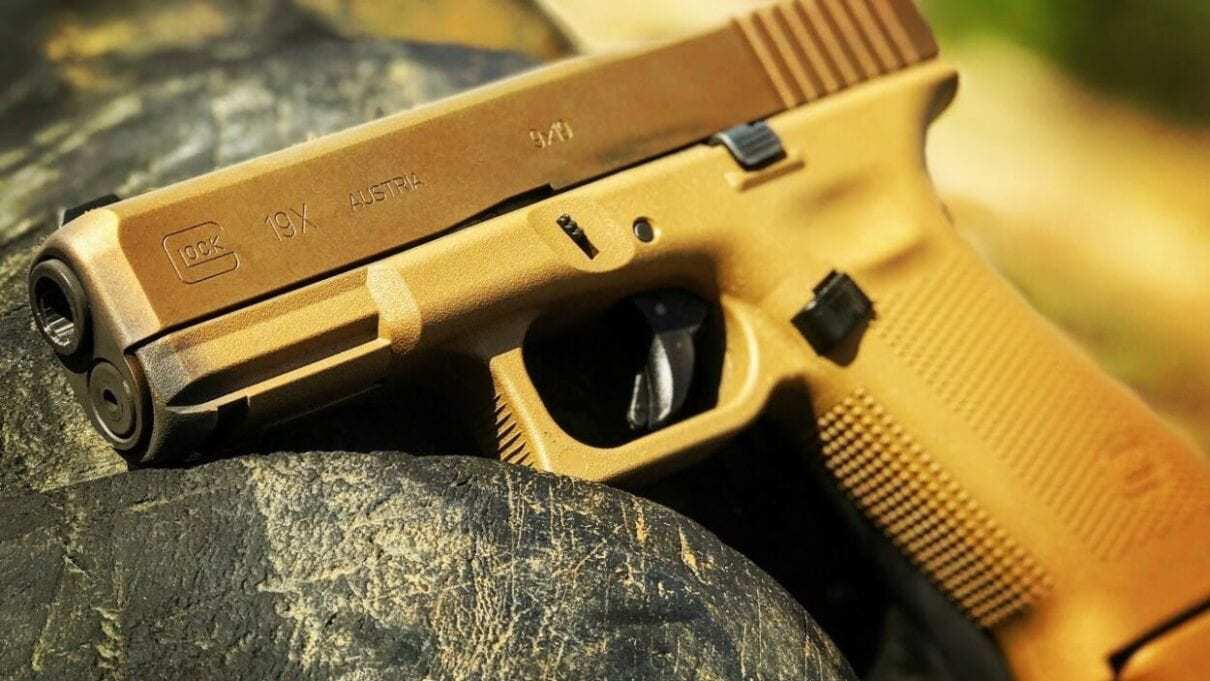Last year, the United States Coast Guard (USCG), which currently operates under the Department of Homeland Security, went a different direction from the other military branches of the U.S. military by adopting the Glock 19 Gen5 MOS as its standard service pistol. The decision had been made after a careful evaluation of existing federal contracts supported by the Austrian firearms manufacturer, while the purchase was made via a U.S. Customs and Border Protection (CBP) contract. But Glock has not always won these big contracts, as the case of the Glock 19x is a prime example.
The Glock 19 had been on the shortlist of handguns to replace the legacy Beretta M9, which had been adopted in the 1980s replacing the ubiquitous Colt M1911 .45 pistol.
Modular Handgun System: Why No Win for the Glock 19x
In September 2015, the United States Army and United States Air Force issued a Request For Proposal, which began the XM17 Modular Handgun System (MHS) competition. The U.S. Army and Air Force eventually considered options from Beretta, CZ, FN Herstal, Glock, KRISS USA, SIG Sauer, Smith & Wesson and STI/Detonics Defense.
In the end, the SIG Sauer P320 MHS, a modified version of the popular P320 was selected and entered service as the M17.
Ever since firearms enthusiasts have pondered how Glock, and the widely popular Glock 19X which is loved by gun enthusiasts as it is for sale to the public, could have lost the competition.
While it was never “a lock” that the Austrian firearm would win the competition, it was seen to have an edge over the other entrants, as the firearm had already been favored by militaries and law enforcement around the world. The Glock 19 is carried by the Federal Bureau of Investigation (FBI), the Department of Diplomatic Security Services (DDSS), U.S. Customs and Border Protection (CBP), and numerous big-city police departments, including the New York Police Department (NYPD), the Los Angeles Police Department (LAPD) and the Chicago Police Department (CPD).
It was selected by the U.S. Secret Service in 2019 and according to a report from ABC News at the time, the Glock handgun was in use with roughly sixty-five percent of U.S. law enforcement agencies at the federal, state, and local level. The Glock 19X was noted to perform ballistically as well, if not better than many higher caliber-round counterparts.
How Could Glock Lose? Cost Was a Factor
Even Glock couldn’t understand why it lost, filing a protest with the Government Accountability Office, which responded that price was certainly a factor. GAO had reported that the handguns from Glock and SIG Sauer were close in performance; the SIG came in at a significantly lower price – nearly $130 million less.

Image: Creative Commons.
“Based upon the technical evaluation and my comparative analysis of the proposals, the Sig Sauer proposal has a slight technical advantage over the Glock proposal,” the GAO said in its final report. “The price analysis shows that the Sig Sauer total evaluated price is $102,705,394 less than the Glock total evaluated price, making the Sig Sauer proposal overall the Best Value to the Government.”
Another factor may have been that Glock reportedly only submitted one full-sized handgun while SIG Sauer had provided two – a full-sized and compact version of the P320. While Glock is known to offer its pistols in a variety of sizes, SIG was the only company that manufactured a fully modular handgun that could be converted from full-size to sub-compact for concealed carry by changing out a few key parts.

Image: Creative Commons.
Peter Suciu is a Michigan-based writer who has contributed to more than four dozen magazines, newspapers and websites. He regularly writes about military small arms, and is the author of several books on military headgear including A Gallery of Military Headdress, which is available on Amazon.com.

